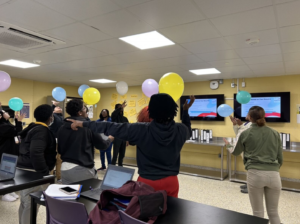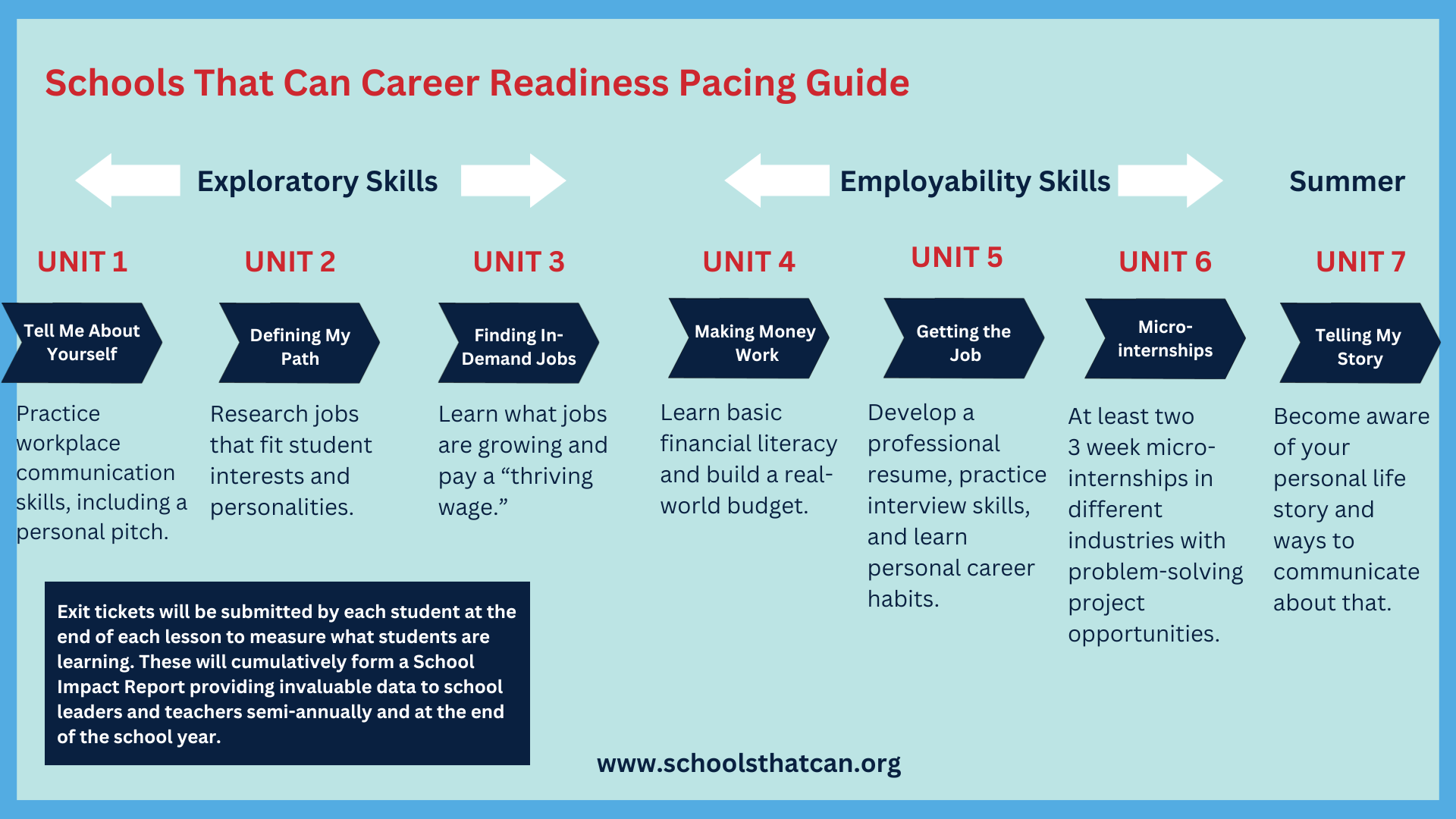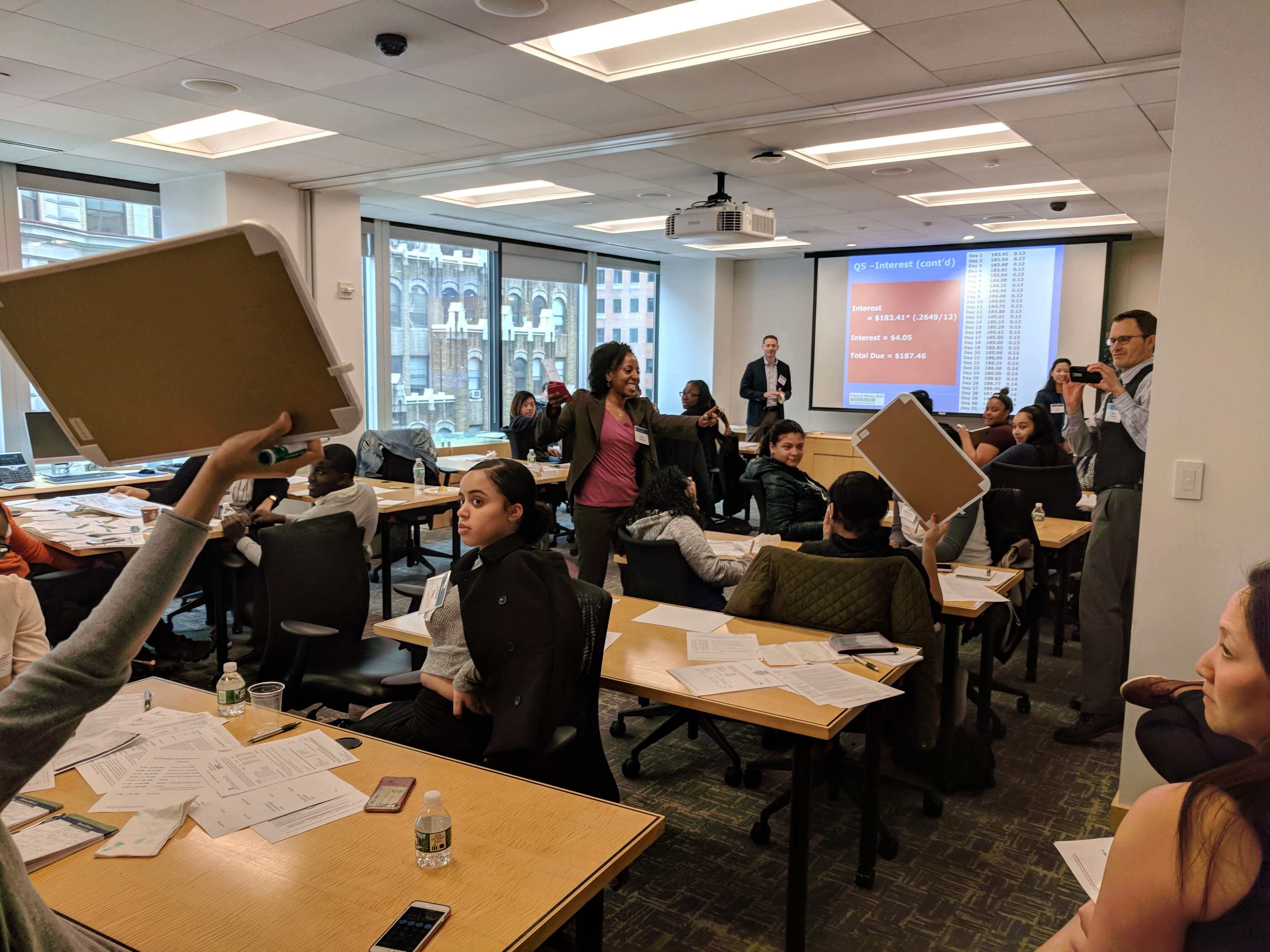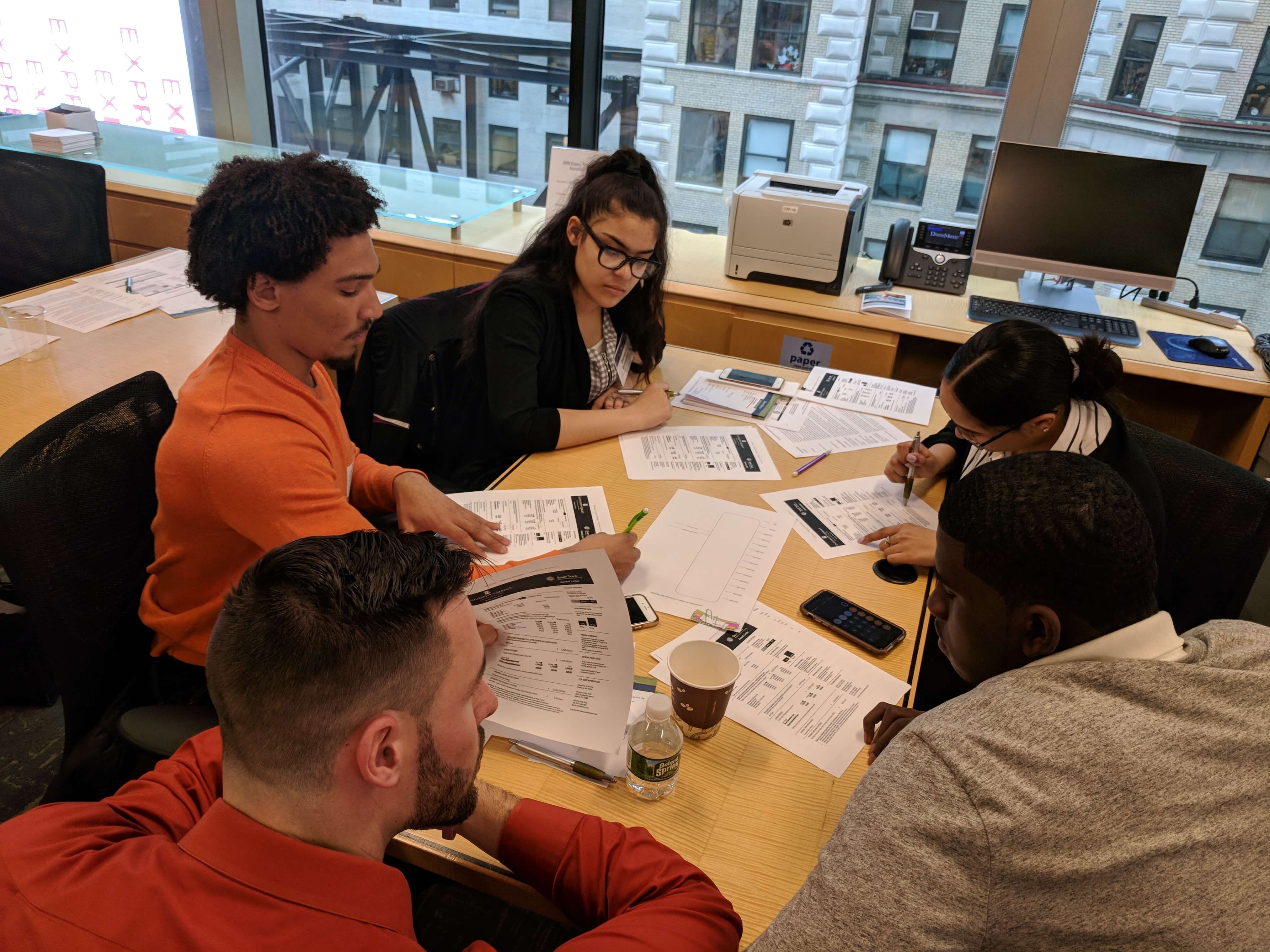Career Readiness
Curriculum
We bring the world of work into schools through a unique co-teaching model, career professionals as volunteers, and one-of-a-kind programming. Our Career Readiness programs fill gaps and build capacity in underserved schools.
- 125 hours of tested and copyrighted curriculum developed with a youth-centered & culturally responsive lens (see samples in appendix).
- Co-teaching: STC’s trained facilitators lead instruction while building new skills and knowledge in partner teachers
- Students engage with industry volunteers in work-based learning experiences.
- Students in the STEM Career Skills course earn college credits and industry-recognized badges.

Education to Employment (e2e) Curriculum

In our 6 unit program aimed at grades 9-12, students build foundational career skills through mock interviews, story slams, resume reviews, and more. The e2e Curriculum can be implemented over the course of 3 years, or facilitated as stand-alone units, making the program flexible to a school’s needs, with a co-teacher provided by STC to bring the program to life in classrooms. Units include: Telling My Story© , Defining Your Path© , In-Demand Jobs, Getting the Job© , Future of Work, and Making Money Work©.
STEM Career Skills & Scholars At Work
What makes STC’s Career Readiness Program unique?
- Students build connections with career professionals
- Students have hands-on work experiences, in addition to skill-building through mock interviews, resume reviews, and budget creation.
- Students gain confidence and develop their voice with a focus on social-emotional learning.
- Our curriculum is youth-centered.
- Our curriculum is co-facilitated with a focus on building school capacity and supporting co-teachers, for easy implementation.
- Our curriculum is culturally relevant, and directly informed by questions students have asked of volunteers about the world of work.
- Students build a Career Portfolio, creating real-world assets for the job search process.
of students said the program made them better prepared for job interviews.
of students met the mock interview standards for professional communication.
of students learned about jobs or careers they had not thought of previously.





